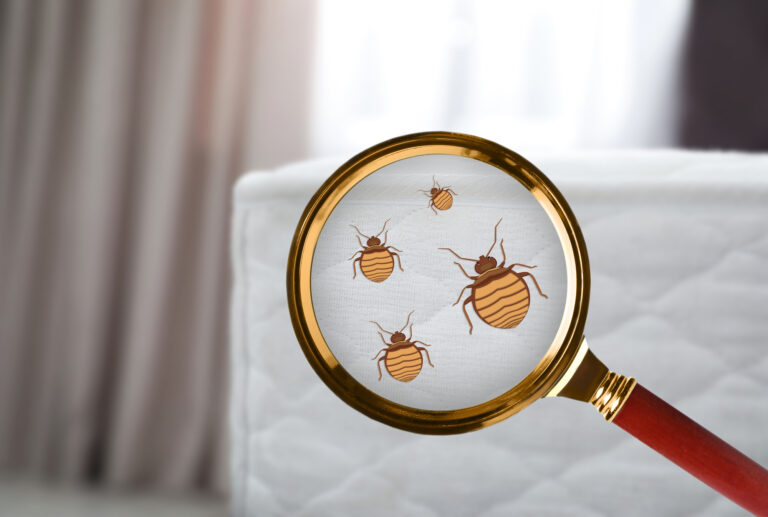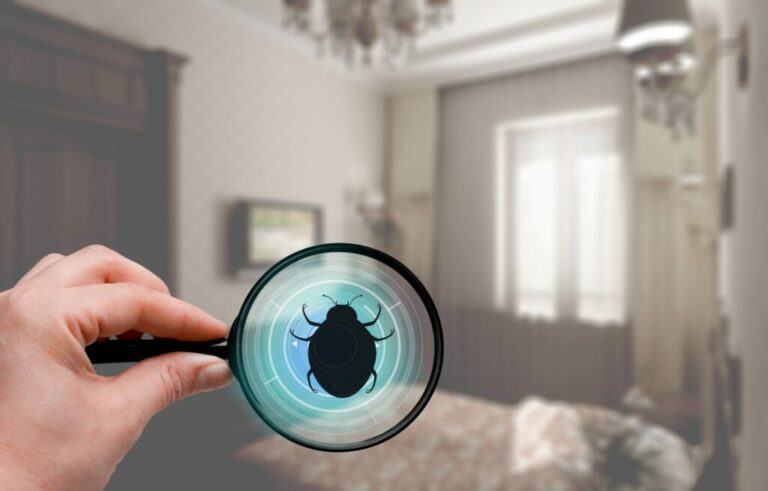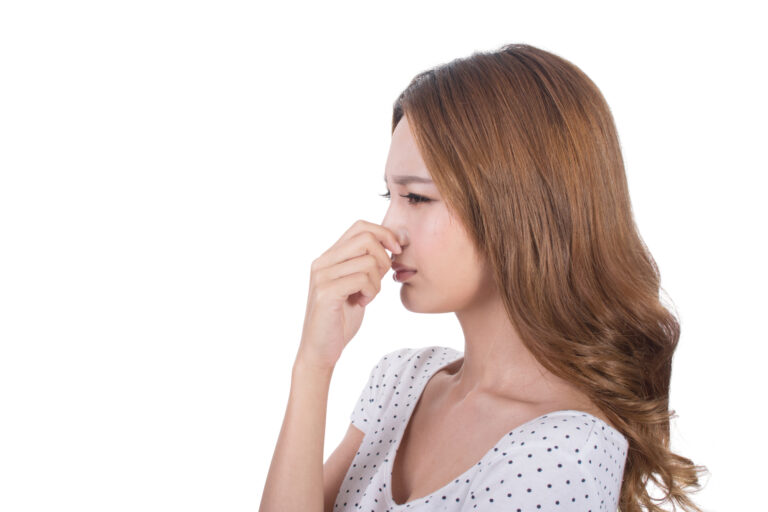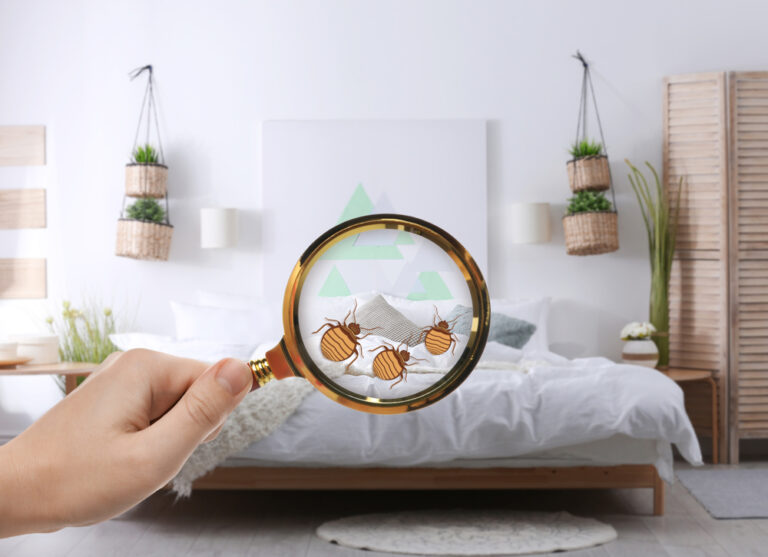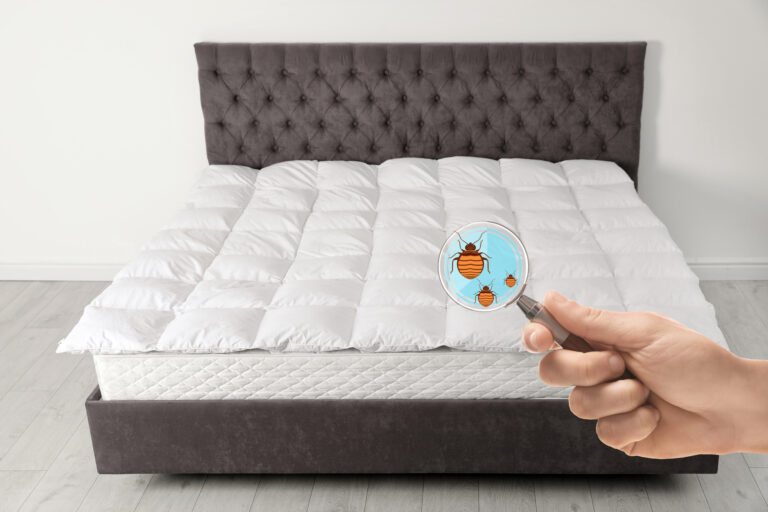Spring break, a highly anticipated time for vacations and getaways, often increases the risk of encountering an unwelcome companion – bed bugs. These tiny, blood-sucking pests can turn a dream vacation into a nightmare if not addressed promptly. To ensure a truly relaxing and bed-bug-free spring break, it is crucial to be proactive and take preventive measures. This article will explore the ins and outs of avoiding bed bugs during your travels, providing valuable insights and practical tips for a worry-free vacation.
Understanding Bed Bugs
Before delving into preventive measures, it’s vital to understand what bed bugs are and how they can spread. Bed bugs are tiny, reddish-brown insects that feed on the blood of humans and animals. Contrary to common misconceptions, these pests are not limited to unclean environments – they can thrive in clean and well-maintained spaces as well. Bed bugs are exceptional hitchhikers, often latching onto your luggage, clothing, and other personal items to move from one location to another.
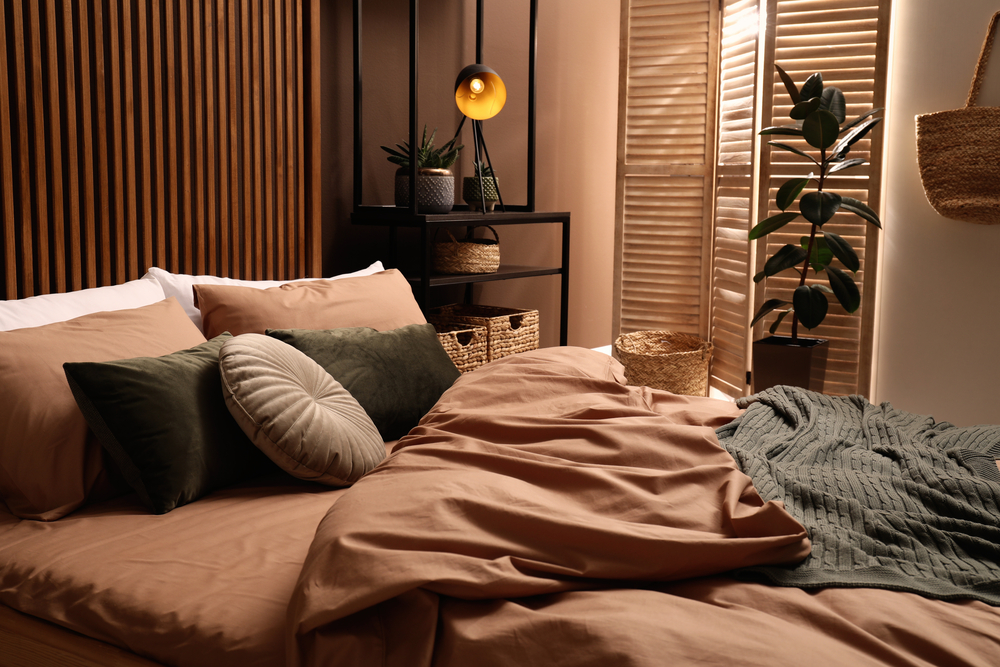
Before You Travel: Precautionary Measures
The first line of defense against bed bugs begins before you embark on your spring break adventure. Thoroughly researching your accommodation is crucial. Check online reviews for any mentions of bed bugs or related issues. Fellow travelers often share their experiences, providing valuable insights into the cleanliness and pest control measures of a particular hotel or rental property.
When packing for your trip, consider using sealable plastic bags for your clothes. This adds an extra layer of protection, preventing bed bugs from infiltrating your wardrobe. Additionally, explore anti-bed bug luggage options, such as specially designed bags that deter these pests from making a home in your belongings.
Accommodation Check: First Things First
Upon arrival at your chosen accommodation, performing a detailed inspection for potential bed bug infestations is essential. Follow this step-by-step guide to ensure a thorough examination:
- Beds: Check the seams, tufts, and folds of mattresses, as well as the headboard and bed frame.
- Furniture: Inspect upholstered furniture, paying close attention to seams and folds.
- Behind Paintings: Bed bugs often hide behind artwork or framed pictures on the walls.
- Crevices: Examine any cracks or crevices in the room, including baseboards and electrical outlets.
During Your Stay: Vigilance is Key
Maintaining vigilance through daily checks and minimizing risks is crucial to ensure a bed bug-free stay during your travels. Here’s how you can actively protect yourself from potential bed bug encounters:
Daily Checks: Inspecting Your Sleeping Area and Belongings Each Day:
- Bed Inspection: Begin by inspecting the bed thoroughly. Check the seams, folds, and tufts of the mattress and the space between the mattress and the headboard. Look for any signs of bed bugs, such as small reddish-brown bugs, fecal stains, or shed skins.
- Furniture Examination: Extend your inspection to other furniture in the room. Pay close attention to seams, folds, and crevices in upholstered chairs and sofas. Bed bugs can hide in these areas during the day.
- Behind Paintings and Wall Decor: Bed bugs are known to hide behind paintings and wall decorations. Take a moment to inspect these items, especially those near the sleeping area.
- Crevices and Cracks: Examine any cracks or crevices in the room, including baseboards, electrical outlets, and other potential hiding spots. Bed bugs can fit into small areas, so a thorough inspection is essential.
- Belongings Check: Regularly inspect your luggage, backpacks, and personal items for any hints of bed bugs. Pay attention to seams, pockets, and folds where these pests might hide.
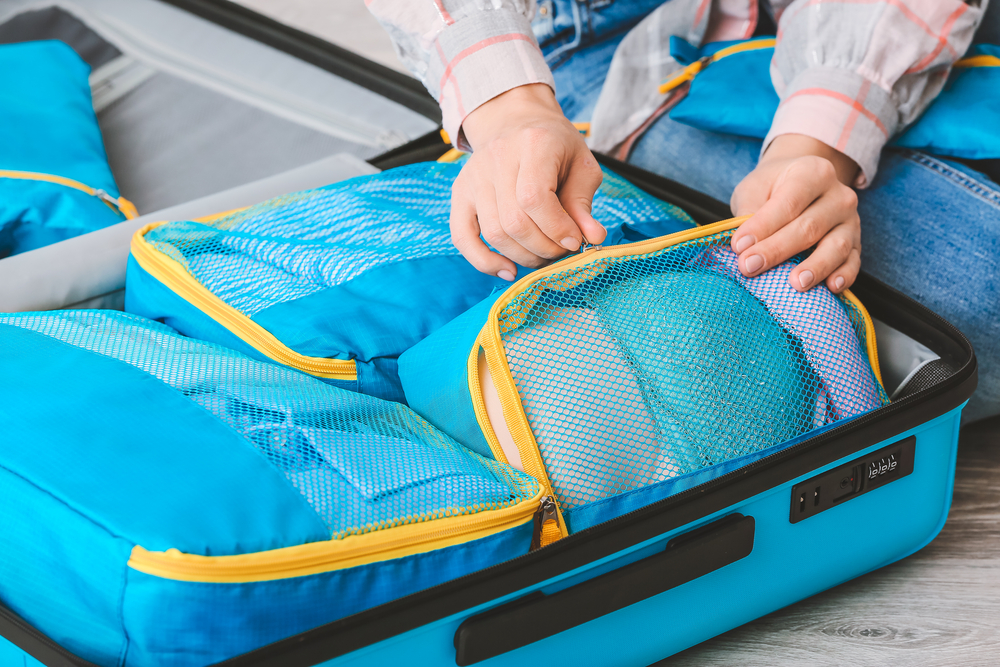
Minimizing Risks: Keeping Luggage Closed and Off the Floor, Using Luggage Racks:
- Luggage Placement: Avoid placing your luggage directly on the floor or the bed. Instead, use luggage racks when available. Elevating your luggage makes it less accessible to bed bugs and reduces the risk of them hitching a ride.
- Closed Luggage: Keep your luggage closed when not in use. Sealed bags are an additional barrier, preventing bed bugs from infiltrating your belongings.
- Use of Plastic Bags: Consider using sealable plastic bags for individual clothing items. This adds an extra layer of protection and makes spotting any signs of bed bugs easier.
- Regular Cleaning: Keep your living space tidy and clutter-free. Bed bugs have difficulty locating good hiding places when spaces are kept clean and organized.
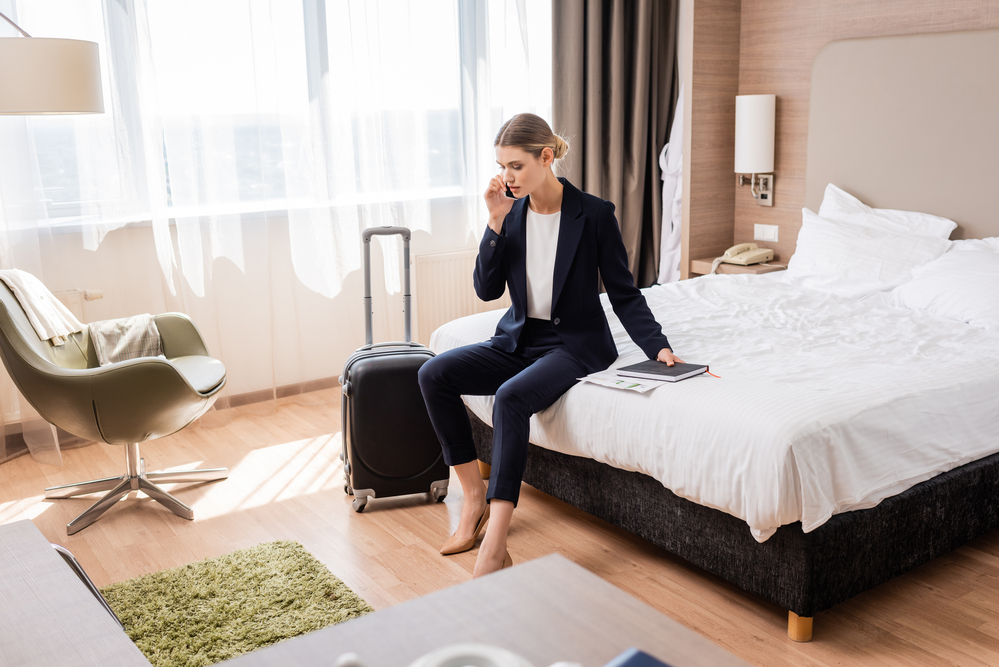
Dealing with Suspected Bed Bugs
Discovering bed bugs during your stay can be unsettling, but taking immediate action is crucial. Here’s a step-by-step guide on what to do if you suspect bed bugs are present:
- Stay Calm: Despite the natural concern, staying calm is essential to make rational decisions.
- Avoid Moving Items: Resist moving your belongings to another room immediately, as it may inadvertently spread bed bugs.
- Document Evidence: Take clear photos or videos of any signs of bed bugs. This documentation will serve as evidence when reporting the issue.
- Isolate Belongings: While refraining from moving items, consider isolating your luggage in the bathroom to prevent further infestation.
- Notify Hotel Staff: Contact the hotel front desk immediately, describing the signs and evidence. Be polite but assertive in communicating the urgency of the matter.
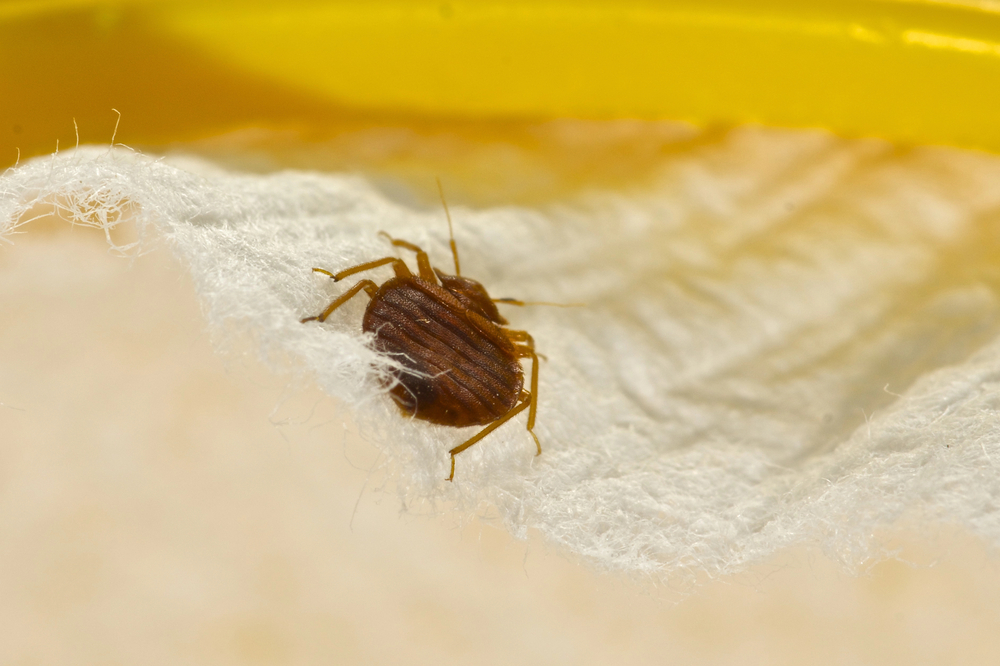
Returning Home: Preventing Hitchhikers
As spring break concludes, the risk of bringing bed bugs home increases. To prevent hitchhikers, follow these tips:
- Handling Luggage: Upon returning home, carefully inspect your luggage for any signs of bed bugs. Using a moist cloth, wipe the outside to remove any possible hitchhikers.
- Washing and Drying Clothes: Launder your clothes at high temperatures to eliminate any bed bugs that may have latched onto your garments during your travels.
If Bed Bugs Follow You Home
Despite taking preventive measures, bed bugs may still find their way into your home. If you discover bed bugs upon your return, take the following steps:
- Isolate Infested Items: If possible, isolate potentially infested items in sealed plastic bags. This helps stop the spread of bed bugs to other areas of your home.
- Thorough Inspection: Conduct a meticulous inspection of your living space, focusing on bedrooms, living rooms, and areas where you frequently spend time. Check seams, folds, and crevices for signs of bed bugs.
- Wash and Dry Bedding: Immediately wash and dry all bedding, linens, and clothing at the highest temperatures recommended for the fabrics. Heat is very effective in killing all bed bugs and their eggs.
- Vacuuming: Vacuum all areas meticulously, including mattresses, carpets, and upholstery. Dispose of the vacuum bag outside of your house in a sealed plastic bag.
- Use Bed Bug Covers: Encase mattresses and box springs in bed bug-proof covers to prevent bed bugs from hiding in these areas.
- Declutter: Reduce the clutter in your living space, as it minimizes potential hiding spots for bed bugs.
- Professional Pest Control: If the infestation persists, it’s advisable to contact a professional bed bug exterminator in Atlanta. Consider utilizing bed bug heat treatment in Atlanta for an effective and thorough solution.
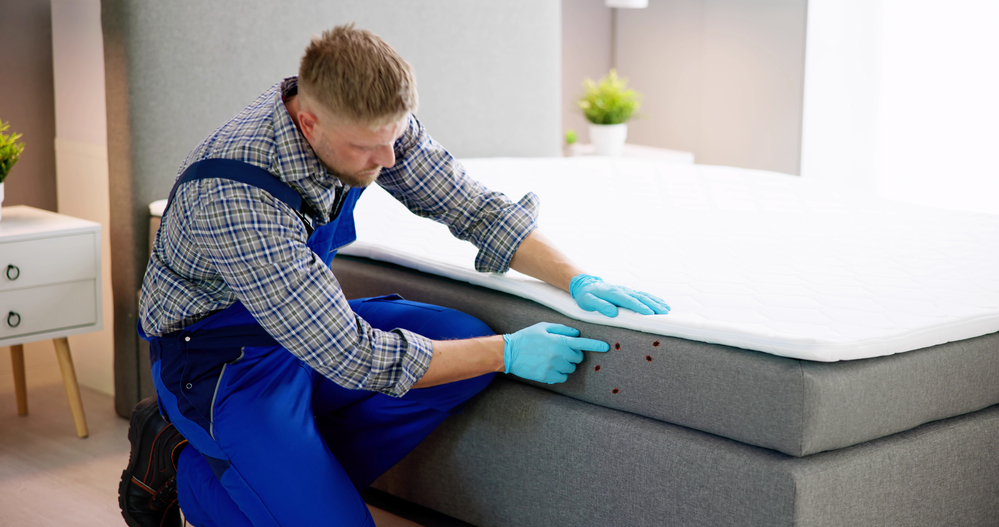
Bug-Free Breaks: Travel with Confidence.
Enjoying a bed bug-free spring break requires vigilance, preparation, and prompt action. By understanding the behavior of bed bugs, taking precautionary measures before and during your travels, and following proper protocols upon your return, you can significantly reduce the risk of these pests. Remember, being cautious and proactive is the key to ensuring a relaxing and truly enjoyable vacation experience. Stay informed, stay vigilant, and have a wonderful, bed bug-free spring break!
on.

